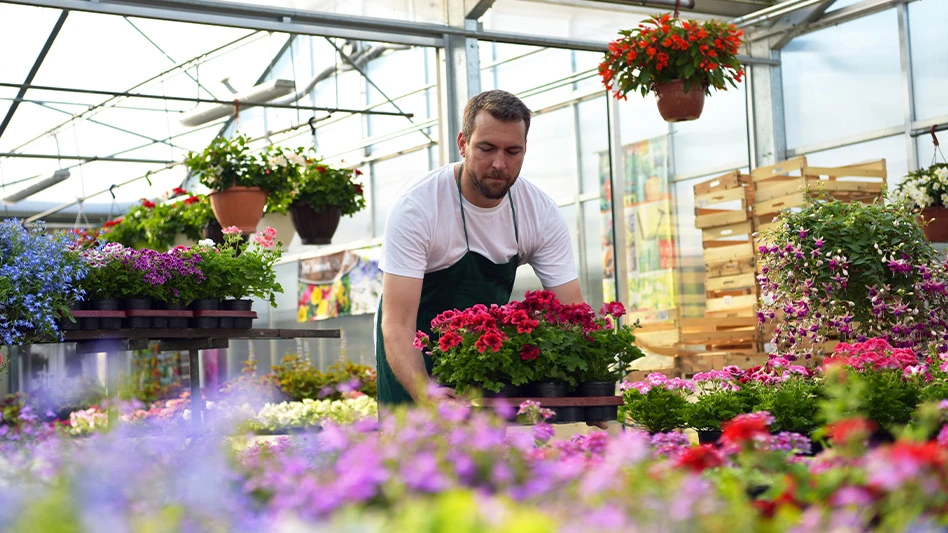
© industrieblick | AdobeStock
According to a study published in the recent issue of Journal of Marketing, that’s just what goes on when shoppers observe how the staff treats merchandise, store property and other customers. The article “Secondary Selling: Beyond the Salesperson-Customer Dyad” presents compelling evidence that when customers see the staff being respectful to the stock and other shoppers, they are more likely to purchase more and leave happy.
For those in the plant business, this means that how staff deals with something as common as blown-over nursery stock can affect your bottom line. When plants tip over, and an employee walks right by on their way from A to B, their inattention to those flattened plants is noted by nearby shoppers. Yes, it’s frustrating to keep righting shrubs, trees or top-heavy perennials on a windy day, but doing so promptly shows respect for those plants that is duly noted by shoppers.

Customers also notice if, in the haste of unloading a large truck of annuals, the trays are being tossed a bit too roughly onto the benches. No, those New Guinea impatiens or Profusion zinnias aren’t being harmed. But to the customer, not placing the trays down gently indicates a lack of admiration for the plants. If the employees don’t value these plants, why would those who are shopping nearby?
This study also tells us that it is wise to keep our waste-loss pile out of public view. There are always plants that break, dry up or become infested with insects or disease, but seeing a pile of sad stock at the back of a hoop house or on the side of the driveway can subtly influence how our customers view us. Pulling unsaleable plants off the shelves is good for our bottom line, in that it’s evident to shoppers that we take care of our merchandise. But leaving those culled plants in full view can send the message that “they let all of these just die.”
If when we’re short of time and space we jam plants tightly together, or stuff excess flats into the dark undersides of the benches, we’re not just making the plants less attractive; we’re showing shoppers that we don’t value what we sell. This creates an atmosphere that counteracts the good will that we work so hard to create with direct eye contact, smiles and cheerful assistance.

Similarly, the study presented evidence that when one shopper sees a staff member treat another customer with patience and respect, that affects the amount of their purchase. Simple things such as quickly turning off a ringing cell without breaking the interaction with the customer can boost sales. Seeing how patient your employees are with an annoyed or impatient shopper creates impressions that affect how much other customers spend.
What goes around comes around, the saying goes. And in retail, elevating our level of care and respect for plants and people improves profits.

Explore the August 2023 Issue
Check out more from this issue and find your next story to read.
Latest from Garden Center
- Meet the Next Gen: Gabriella Blair, Star Roses and Plants
- Leading Women of Horticulture: Katie Dubow, Garden Media Group, and Aubry Field, Lizzy Blossom
- Boxed in: 2025 Axiom Gardening Outlook Study explores big box vs IGCs
- Rhododendron renaissance: Holden Forests & Gardens using research to improve commercial plants
- Showing up at your horticulture business as your whole self
- Ask HR: We got a bad review after an employee having a bad day snapped at a customer. What do I do?
- University of Florida researchers are securing the future of floral fragrance using caladium
- Leading women of Greenhouse Management





